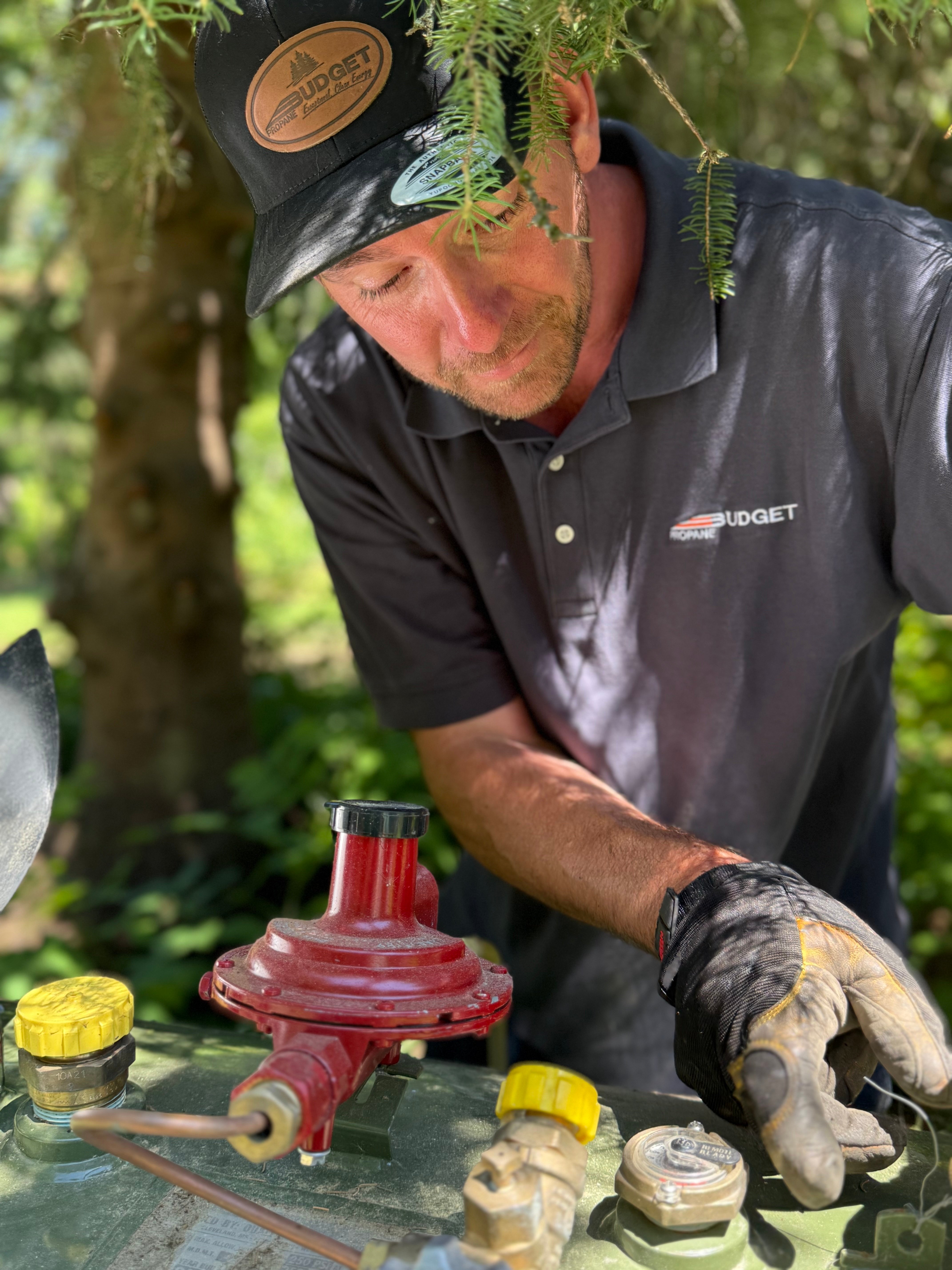PROPANE 101
Propane 101 is your guide to understanding one of the cleanest, most versatile energy sources available today. From how propane is stored and delivered, to its many uses in home heating, cooking, water heating, and outdoor living, this resource covers the basics you need to know. Learn why propane is a safe, efficient, and environmentally friendly fuel choice for homes, cottages, farms, and businesses across Ontario.
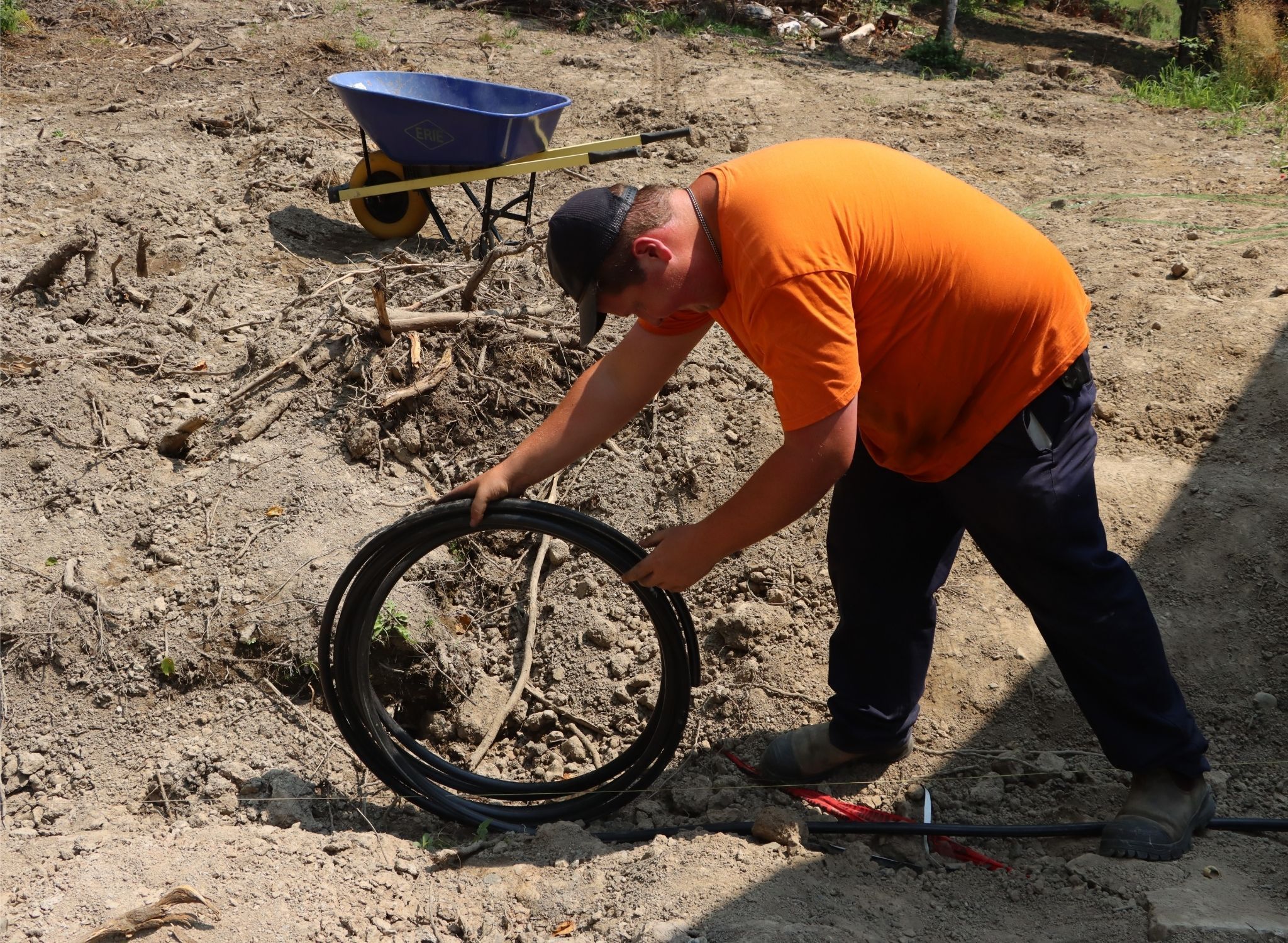
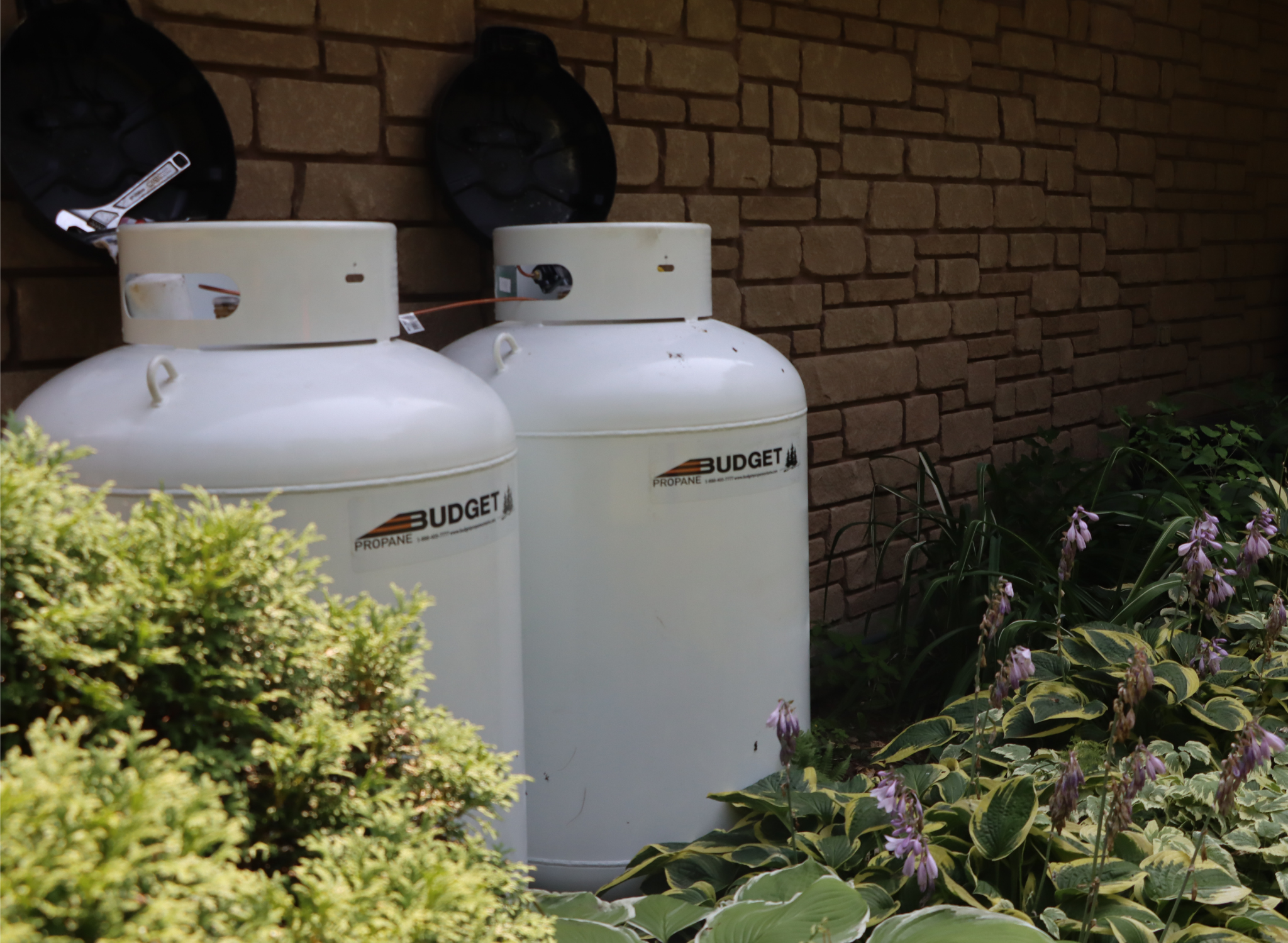

.png)
Why Choose Propane?
Propane is one of the most versatile, cost-effective, and environmentally friendly fuel sources available today, with an abundant supply right here in Canada. Its portability and efficiency make it the perfect choice for homes, cottages, farms, and businesses. Choosing propane means saving money, lowering your carbon footprint, and supporting the Canadian economy.
Versatile
Propane powers a wide range of applications: home heating systems, water heaters, furnaces, space heaters, and kitchen appliances. It’s also widely used in agriculture, industrial operations, and outdoor living.
Cost-Effective
Propane appliances are highly energy efficient, helping you reduce energy bills. For example, propane furnaces heat at up to 90% efficiency compared to oil furnaces at just 60%. Plus, propane-powered systems have a longer lifespan, making them a smart long-term investment.
Environmentally Friendly
As one of the cleanest-burning fossil fuels, propane produces fewer carbon emissions than many alternatives. It does not release harmful greenhouse gases when released into the air, making it a cleaner choice for heating and energy use.
Readily Available
Canada is the 6th largest producer of propane worldwide, responsible for 3.5% of the global supply. With half of that supply used domestically, propane remains readily available and competitively priced for Canadian households and businesses.
Good for the Economy
The propane industry contributes nearly $10 billion to the Canadian economy every year and supports more than 20,000 jobs across the country.
Safe
Propane is non-toxic and poses no risk to soil, water, or the environment. It is lead-free, has a low flammability range, and is odourized to allow for early leak detection, making it a safe and reliable energy option.
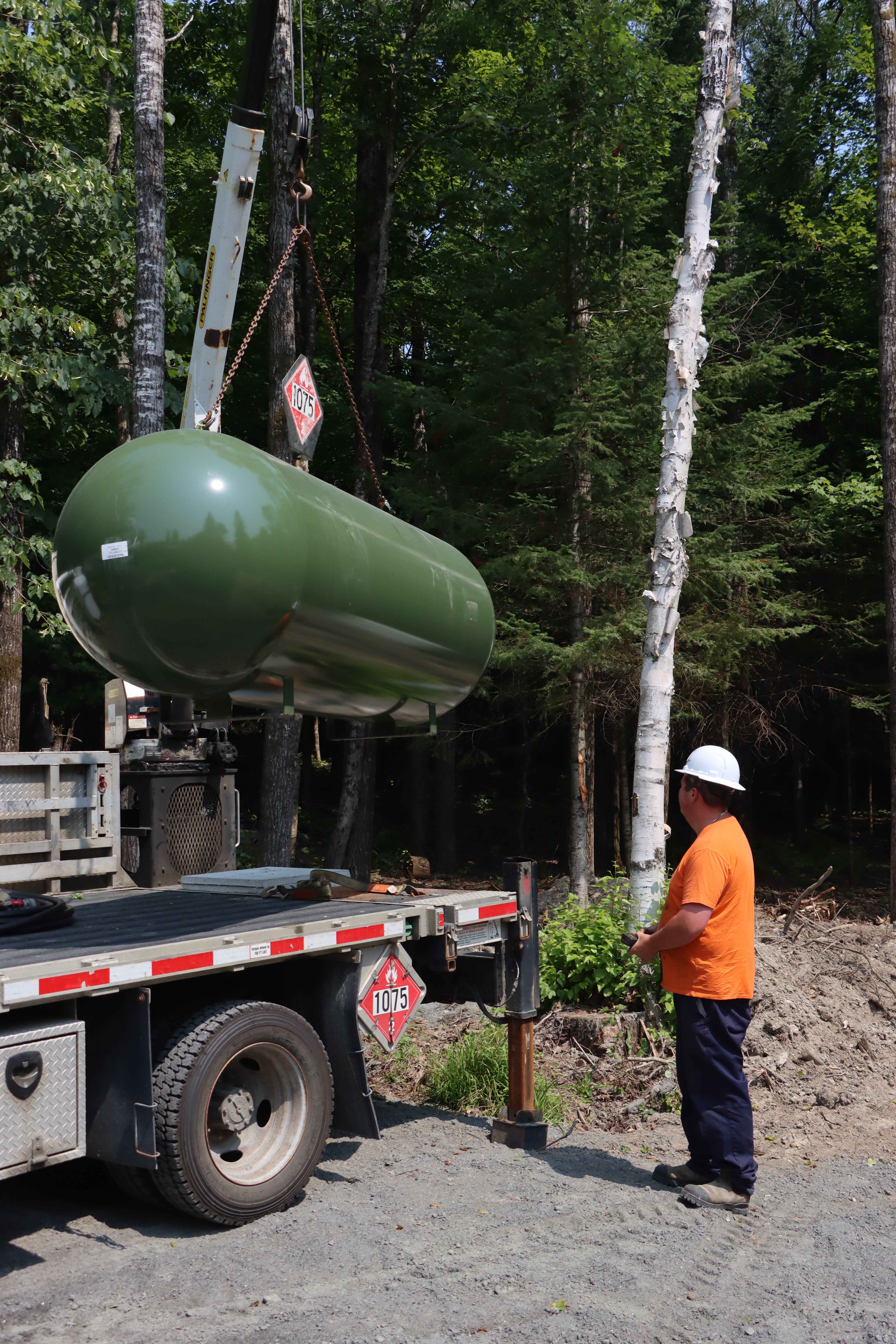
exceptional, clean energy
Environmental Benefits of Propane
Propane is an eco-friendly energy source that combines efficiency, safety, and sustainability for homes and businesses.
Propane produces over 50% fewer greenhouse gas emissions than electricity and its exhaust creates 60–70% fewer smog-producing hydrocarbons than gasoline.
With a lower carbon content than fuel oil, gasoline, diesel, kerosene, and ethanol, propane is one of the cleanest-burning fuel options available.
Propane is nontoxic and insoluble in water. Since it’s released as a gas, it doesn’t spill, pool, or leave harmful residues—making it safe for the environment even in the unlikely event of a tank leak.
When properly burned, propane produces virtually no soot and only low levels of carbon monoxide, hydrocarbons, and nitrogen oxides, resulting in cleaner indoor and outdoor air.
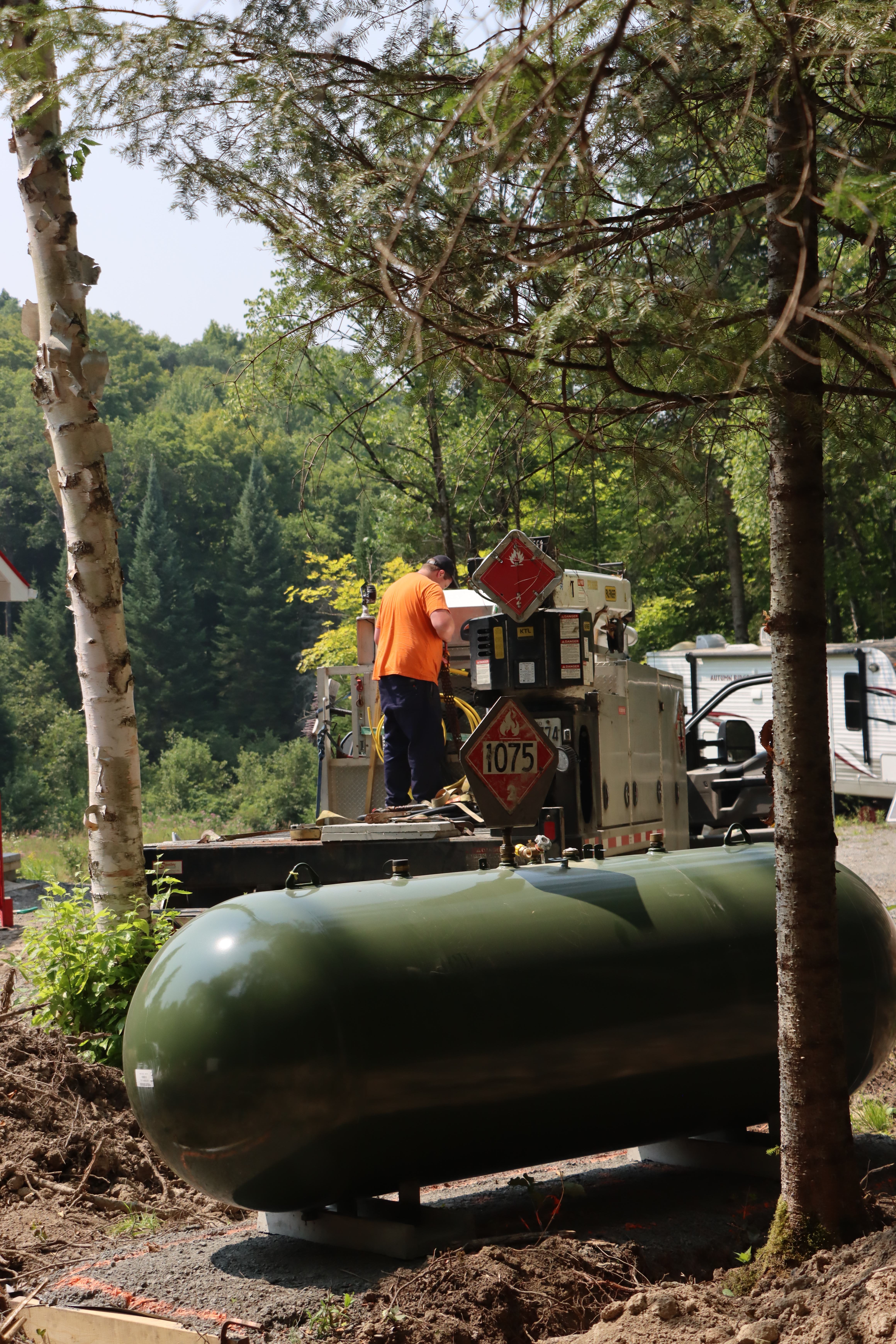
Switching from Oil to Propane
Insurance and Liability
If you live in an older home with an oil tank, it’s important to understand how strict insurance requirements have become in recent years. Most Canadian insurance providers now impose clear age and condition limits on domestic oil tanks. In many provinces, tanks must be replaced every 10 to 20 years, with some companies setting the cutoff as early as 15 years. Even if your oil tank is newer, insurers may still require regular inspections for tanks over 25 years old before they will provide or renew coverage. These rules are designed to reduce the risk of oil leaks and spills, which can cause severe environmental damage and result in extremely costly cleanup bills.
For homeowners, this means you may be forced to replace your oil furnace equipment long before it shows obvious signs of wear. And because insurers are tightening these rules year after year, relying on older oil equipment can put both your insurance eligibility and your financial security at risk.
By upgrading now to a modern propane heating system, you can avoid these challenges altogether. Propane tanks and equipment are generally easier to insure, since they carry a far lower risk of corrosion, spills, and costly environmental claims. Making the switch to propane not only helps you lower your risk profile and potentially reduce insurance premiums, but it also provides a safer, more sustainable, and energy-efficient heating choice for your home and family.
Safety Tips for Homeowners
Check for Leaks:
If you ever smell propane (like rotten eggs), leave the area immediately and call your propane supplier or emergency services.
Keep Tanks Clear
Ensure snow, ice, or debris is cleared from around propane tanks, regulators, and vents.
Never Store Indoors
Propane cylinders and tanks must always be stored outdoors in well-ventilated areas.
Professional Installation & Maintenance
Always rely on certified technicians for installation, inspection, and service.
Safety & Compliance
Safety is our top priority. Our team ensures that all propane installations meet Ontario safety regulations.

From cooking to heating—propane does it all
Propane Uses
Propane is one of nature's most versatile sources of energy.
It can fuel much more than your outdoor barbeque or recreation vehicle. In fact, propane is used in a variety of industries for multiple purposes, from fueling your home’s furnace or boiler, to controlling pests and weeds on farms without chemicals.
There are many uses and applications for propane that are readily available for homes, businesses, industries, commercial enterprises, and the construction sector:
From energy-efficient tankless water heaters to sleek stainless-steel appliances, propane delivers the comfort and performance homeowners want. It can power furnaces, space heaters, water heaters, fireplaces, refrigerators, dryers, and even indoor lighting, making it a versatile choice throughout your home. Outdoors, propane fuels barbecues, pool and spa heaters, backup generators, and patio heaters, helping you make the most of your backyard
For large-scale applications, propane is a reliable and cost-effective energy source. Commercial-grade propane furnaces and water heaters are trusted in hospitals, warehouses, and manufacturing facilities, where consistent energy supply is critical. Its efficiency and dependability make propane the smart solution for buildings with high energy demands.
On the job site, propane’s portability and flexibility make it a top choice. Propane-powered construction heaters keep offices and worksites warm and come in a range of sizes to suit different needs. Unlike utilities, propane lets you control your own timing, whether you need temporary heat while finishing drywall or a dependable source of energy for ongoing construction projects.
Chefs and food service professionals rely on propane for its precision and performance. Propane cooktops provide instant heat, better temperature control, and more even cooking than electric options. With appliances like stovetops, fryers, and refrigerators, propane ensures reliability in busy kitchens while reducing risks with quick-cooling burners. Propane is also found in your favourite food trucks!
Propane is also a clean and efficient option for fleet and transportation needs. It’s widely used in taxis, delivery trucks, school buses, and service vehicles, as well as forklifts for both indoor and outdoor use. Its low emissions, affordability, and power make it an excellent choice for moving people and goods safely and sustainably.
